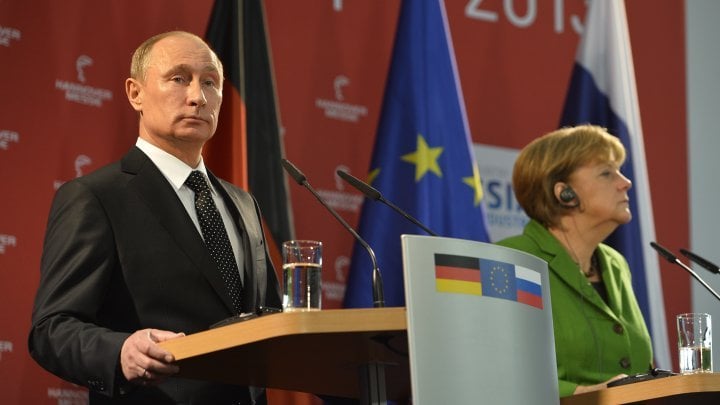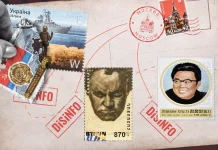
Germany is investigating suspicions that pro-Kremlin media are seeking to fan tensions over Europe’s refugee crisis with a string of phony reports, including claims the Cologne sex assaults were carried out by drug addicts hired by the CIA, Sébastian Seibt wrote for France 24.
Berlin’s counter-espionage agency has been tasked with investigating whether Russia’s Vladimir Putin has reverted to Cold War tactics to destabilise Germany, according to German media reports last week that also noted Chancellor Angela Merkel had expressed a “personal interest” in the matter.
The Russian president is suspected of seeking to “sow the seeds of discord in Europe by weakening Germany and Angela Merkel”, according to German intelligence sources quoted by Sueddeutsche Zeitung as well as the NDR and WDR television networks.
The news agencies cited the pro-Kremlin media’s alarmist and often unfounded reports on Germany’s record influx of refugees, which has caused tensions in parts of the country and weighed heavily on Merkel’s approval ratings.
While the government in Berlin has not officially filed a complaint, spokeswoman Christiane Wirtz said it was “closely monitoring the current spike in Russian media activity”.
CIA ‘plot’
Europe’s migrant crisis has handed Moscow a golden opportunity to argue that German authorities are “incapable of stemming the [migrant] flow that has descended upon the continent”, argued Deutschland Radio Kultur, a German radio station.
The notorious sexual assaults that rocked the city of Cologne on New Year’s Eve, many of them blamed on migrants, have given free rein to the gross exaggerations and eccentric theories of some Russian media. In its coverage of the Cologne attacks, private channel Ren-TV used file footage of clashes on Cairo’s Tahrir Square to give the impression of a city invaded by migrants of Arab origin.
Some Russian websites even suggested the Central Intelligence Agency (CIA) was somehow involved. According to this theory, the US spy agency recruited drug addicts to take part in the violence while posing as Muslims and paid them with heroine.
Russian media are not alone in indulging in such fantasies. Pro-Kremlin publications in the Czech Republic have been just as inventive, says the European External Action Service, the EU’s diplomatic agency. In its weekly report on Russian disinformation, it cited a claim by the aeronet.cz website that the German government had struck a deal with Facebook and Twitter to remove all negative comments on migrants and block reports of attacks by refugees.
The same website asserted in December 2015 that Germany was mulling sanctions, including military, against European countries that did not allow the free circulation of refugees.
What next?
The most striking example of disinformation involved a news report in late January claiming that refugees had abducted and gang-raped a 13-year-old Russian girl in Berlin – and that police had covered up the crime.
FRANCE 24’s Observers website helped prove that a video circulated by Russian media, in which refugees were seen bragging about the alleged rape, was in fact a fake. German prosecutors later established that the whole story was made up.
According to the NDR news channel, such theories are unlikely to convince many in Germany. But it is worth noting that the country has a sizeable Russian-speaking community, which has access to these websites, and which has already organised several protests calling for stricter measures against migrants.
Germany’s counter-espionage agency will be tasked with determining whether the reports stem from conspiracy theorists or are part of a broader plot hatched by the Kremlin.
“It’s not easy to uncover tangible evidence in these cases,” a senior intelligence official told Sueddeutsche Zeitung. And if Moscow is found guilty, he added, how do you hit back?
By Sébastian Seibt, France 24.





